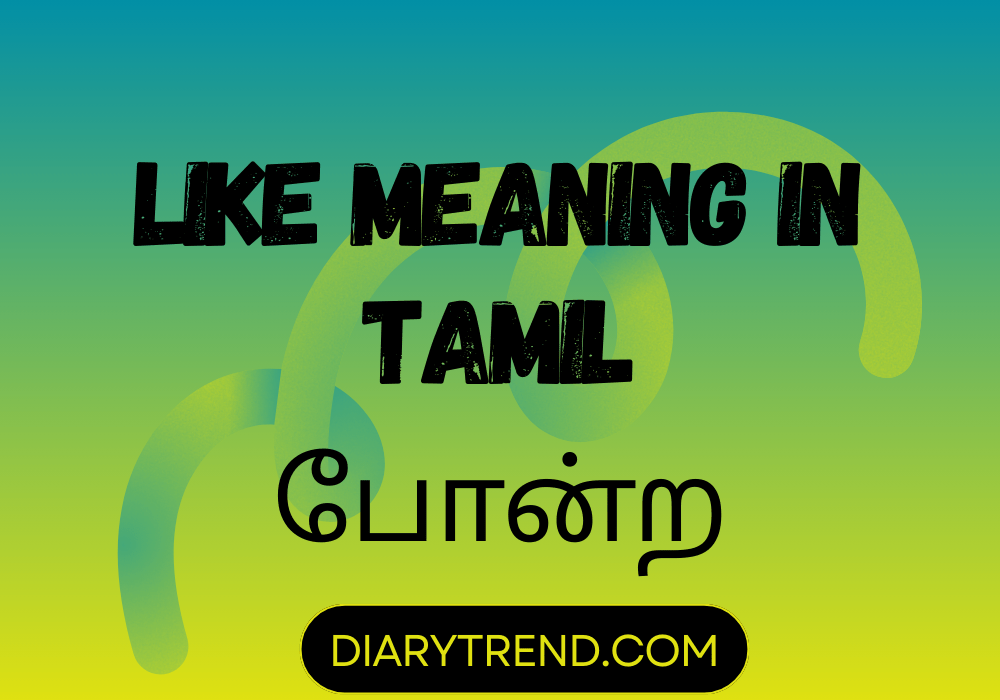The English word “like” is a versatile term with a range of meanings and uses, from expressing enjoyment and approval to comparing similarities, and even serving as a conversational filler. When translating “like” into Tamil, the context dramatically shapes which word or phrase is used, reflecting the rich linguistic and cultural nuances of the Tamil language.
Expressing Enjoyment or Approval
In English, “like” is often used as a verb to express enjoyment or approval of something. In Tamil, this sentiment is conveyed with the verb “பிடிக்கும்” (piṭikkum). For instance, “I like this book” translates to “இந்த புத்தகம் எனக்கு பிடிக்கும்” (Indha putthakam enakku piṭikkum).
Indicating Similarity
As a preposition used for drawing comparisons, “like” is translated into Tamil as “போல” (pōla) or “போன்ற” (pōnṟa), meaning “similar to” or “such as.” For example, “He runs like the wind” becomes “அவன் காற்று போல ஓடுகிறான்” (Avan kāṟṟu pōla ōṭukiṟān).
Conversational Filler
In conversational English, “like” is frequently used as a filler word without adding significant meaning to the statement. While Tamil speakers might use different strategies or filler sounds to break the flow of speech or to think, there isn’t a direct equivalent to “like” in this context, showcasing a linguistic difference in how conversations are structured and paced.
Expressing Preferences
Though not a direct translation, when discussing preferences, Tamil uses phrases like “விரும்புதல்” (virumpudhal), which aligns more closely with “prefer.” The usage of “like” in this context requires selecting words that accurately convey the speaker’s feelings towards the subject matter.
Cultural and Linguistic Reflections
The translation of “like” into Tamil underscores the importance of context in language translation, revealing how cultural nuances influence linguistic expression. Tamil, with its rich history and literary tradition, offers a range of expressions that capture the various shades of meaning carried by the simple English word “like.” This linguistic diversity enriches communication, allowing for precise expression of thought and emotion.
In translating “like” and other such multifaceted words, it becomes clear that language is more than just a tool for communication—it’s a reflection of culture, context, and the complexities of human emotion and thought. The Tamil language, with its depth and versatility, beautifully exemplifies this, offering a window into the cultural richness of the Tamil-speaking world.
